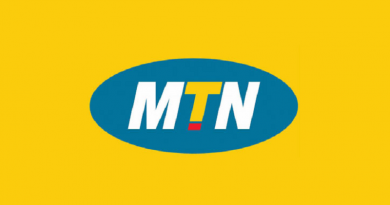Nigeria grew internet subscribers to 159 million in August 2023
The Nigerian Communications Commission (NCC) has recently released the latest data on internet subscriptions, revealing that there were 159 million subscriptions in August ’23, representing a 4.4% year-on-year increase. However, on a month-on-month basis, there was a slight decline of -0.3% in internet subscriptions. Despite changes in consumption patterns, internet subscriptions have remained resilient, highlighting the continued importance of social connectivity, even during economic challenges. Social media platforms, messaging apps, and online communities continue to play a crucial role in maintaining connections, sharing information, and staying informed, thereby driving sustained internet usage.
Moreover, Nigeria has experienced a surge in entrepreneurship and digital innovation, with startups and small businesses relying heavily on the internet for their operations, ranging from marketing to sales. This entrepreneurial ecosystem contributes significantly to the consistent demand for internet services.
According to a separate report by the National Bureau of Statistics (NBS), Lagos state recorded the highest number of active internet subscribers in Q3 ’23, with 19.2 million, followed by Ogun state with 9.5 million and Kano with 8.7 million. On the other hand, Bayelsa recorded the lowest number with 1.2 million subscribers. The demand for and accessibility of internet services vary among states, with differences in internet subscriptions between Lagos and Bayelsa attributed to factors such as population density, infrastructure development, business ecosystems, as well as educational and entertainment centers.
Returning to the NCC data, MTN accounted for the largest share (38.6%) of internet subscriptions in August ’23. Meanwhile, Globacom, Airtel, and 9mobile accounted for 27.9%, 27.3%, and 6.3% respectively. It is worth noting that Airtel, 9mobile, and Globacom recorded marginal month-on-month increases in total internet subscriptions at +0.1%, +0.3%, and +0.1% respectively.
In the meantime, MTN experienced a slight decline of -0.4% during this period. However, according to MTNN’s 9-month financial results from January to September 2023, there was a significant increase in service revenue by 21.7% year-on-year (y/y). This growth can be attributed to the rise in data revenue by 15.3% y/y. Despite the commendable revenue generation, there was a noticeable decrease in profit due to the increase in operating expenses.
The latest national accounts released by the NBS reveal that the telecommunications sector grew by 7.7% y/y and contributed 13.5% to the total GDP in the third quarter of 2023. If Nigeria’s ICT sector continues to experience double-digit growth for five consecutive years, it has the potential to drive substantial economic expansion. Our internal estimate suggests a GDP growth rate ranging from 1-2 percentage points per year. This projection takes into consideration the sector’s direct contribution to GDP, as well as its indirect impact on other sectors through enhanced productivity, innovation, and connectivity.
Furthermore, broadband penetration increased to 45.6% in August 2023 compared to 44.4% in the same period of 2022. The Nigerian government has set a target of achieving 70% broadband penetration by 2025, as outlined in the National Broadband Plan (NBP) 2020-2025. While it is possible to close this gap by 2025, there are certain obstacles that need to be addressed. These include delays and challenges in obtaining the necessary permissions for laying fiber optic cables, which are hindering the deployment of broadband infrastructure. In 2020, the Nigerian Governors’ Forum mandated telecom operators to pay a Right of Way (RoW) fee of N145 per linear meter of fiber. Notably, only Nasarawa, Kaduna, Ekiti, Katsina, Plateau, and Ekiti opted for zero charges. Meanwhile, the FCT (Federal Capital Territory) announced a reduced RoW charge of N14.50 per linear meter in 2022, which represents a 90% reduction from the regular fee.
Effectively addressing challenges related to Right of Way (RoW) in Nigeria requires a strategic and nuanced approach. It is crucial to streamline regulatory frameworks and establish transparent fee structures in order to reduce unnecessary delays and financial uncertainties for infrastructure developers. Embracing digital platforms for RoW processes aligns with global best practices, enhancing administrative efficiency and minimizing bureaucratic obstacles. Engaging stakeholders through sustained dialogue and community sensitization becomes essential, as it fosters a collaborative environment conducive to infrastructure development. Public-private partnerships should be strategically leveraged, with a focus on incentivizing private sector involvement in broadband deployment. Standardized RoW agreements and dedicated task forces can institutionalize efficient decision-making processes, ensuring consistency and fair negotiations.
In terms of opportunities within the ICT sector, digital transformation services play a significant role. Businesses are increasingly seeking innovative solutions such as cloud computing, cybersecurity, and data analytics to enhance their efficiency and competitiveness. Furthermore, there are opportunities for expansion and upgrades in telecommunications infrastructure development, including the deployment of advanced technologies like 5G. This addresses the growing demand for data and connectivity in a rapidly digitizing society. Cybersecurity services also remain crucial, as the reliance on digital platforms necessitates robust solutions to protect businesses from evolving cyber threats.
The Federal Government of Nigeria (FGN) has demonstrated its commitment to expanding digital infrastructure. Initiatives aimed at improving broadband penetration and increasing internet accessibility, particularly in rural areas, contribute to the overall growth and resilience of internet subscriptions and, consequently, the broader economy. SOURCE: CORONATION MERCHANT BANK – Coronation economic note




